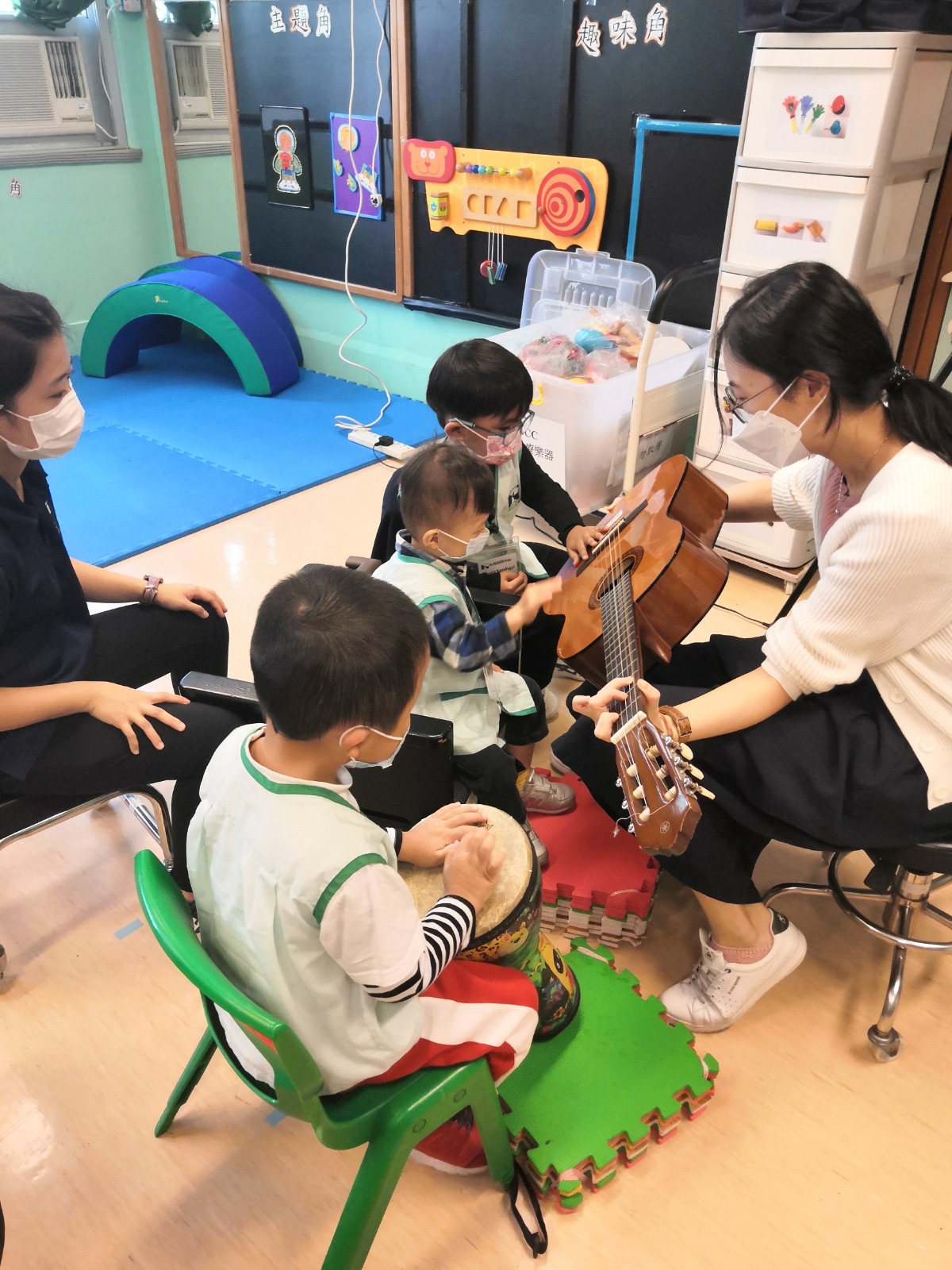
It is a human instinct to feel the music. Music education is inextricably linked to the whole person's development of children. When children play musical instruments, sound stimulation and learning of fine motor skills, such as hand-eye coordination, provide them with the stimulation needed for brain development, memory, perceptual and sensory abilities, and physical functioning.
By joining Music Sensitivity Class, kids can learn and experience the types of sounds, timbres, tempo, intensity, and different rhythms of music, which nurture their musical talents. Music interaction and ensemble playing increase the motivation to focus and interact with others, enhances listening and quick response capability, and cultivate expression and social interaction. In addition, immersed in this musical atmosphere, children improve their language and emotional expression, coordination, and creativity, as well as stimulate their curiosity to explore the world and learn about themselves and the people, events, and things around them.

Instructor Introduction - Australian Registered Music Therapist Diana Chan
With rich and diverse clinical experience, her training in Nordoff-Robbins Music Therapy focuses on a music-centered, person-centered, and interactive approach, believing that everyone is naturally gifted in music, using music as a medium of communication, and using improvisation to connect with her clients.
She works with individuals and families with developmental/special needs, the visually impaired, young people and adults affected by emotional or psychiatric illnesses, the elderly with cognitive disabilities, those who have suffered from strokes and have lost their language ability, and the community at large.


